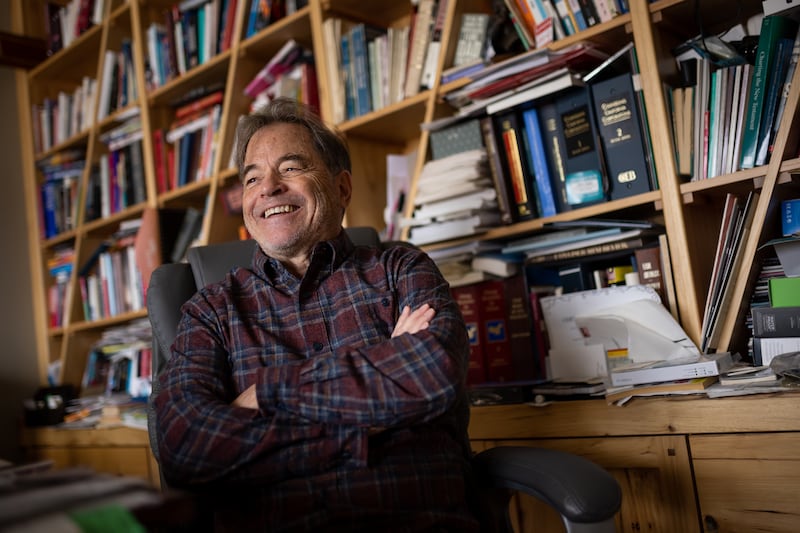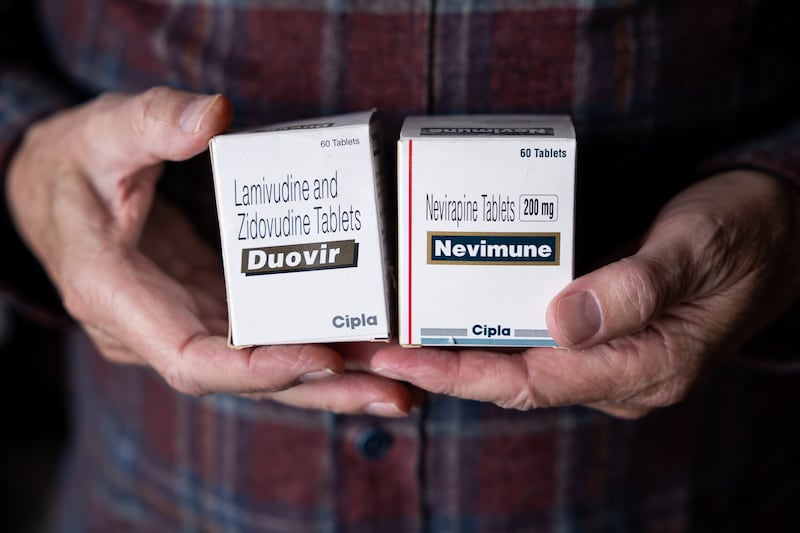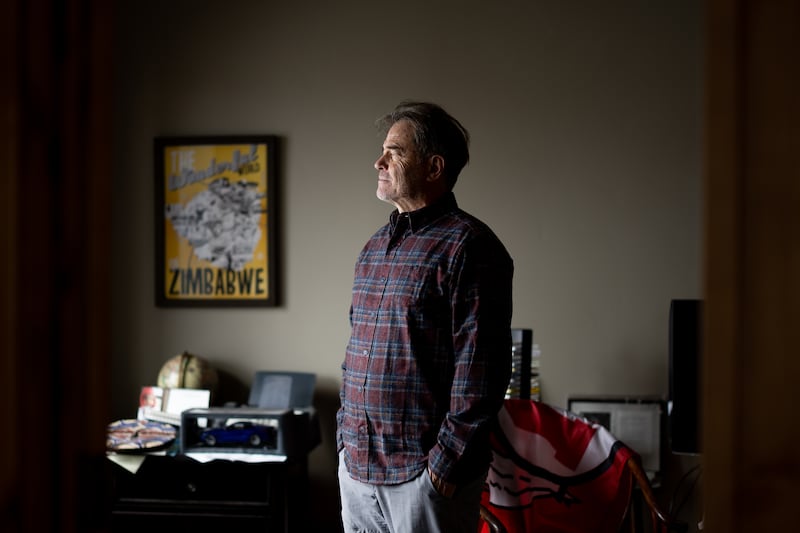Nobody made a greater mistake than he who did nothing because he could do only a little. — Sir Edmund Burke
The quote that launched the cause that has saved who knows how many lives and helped steer the African nation of Zimbabwe from the devastation of HIV/AIDS sits prominently on the corner of Cole Capener’s desk.
He doesn’t remember exactly how he first came to read Sir Edmund Burke’s homily, but he certainly remembers how it catapulted him into action.
For years he’d been having a Don Quixote-esque internal debate about the purpose of life and his role in it.
The conversation went something like this:
Practical side of the brain: Congratulations! You’ve done well in your career. You’ve made partner in one of the world’s largest law firms, Baker & McKenzie. You’ve helped bring American high tech companies to China and open up the country’s economy. You’ve been able to live in Beijing and Hong Kong, fulfilling your goal of putting the Mandarin you learned on your Latter-day Saint mission in Taiwan to good use.
Other side of the brain: When are you going to do something meaningful with your life?
Now, armed with Burke’s words, and not much else, he walked into the managing partner’s office, cleared his throat and said, “I’d like to take a year off.”
That was 21 years ago.
* * *

Next week, coinciding with World AIDS Day on Dec. 1, Capener will be making his 21st annual trek to Harare, the capital of Zimbabwe, to see firsthand how SAFE — Saving African Families Enterprise — is faring and to make plans for the coming year.
SAFE is the charity he started within months after he took his leave of absence from Baker & McKenzie in the summer of 2001.
To this day, he marvels at how fast the pieces fell into place.
“I think if you have a desire to try to serve, doors will be opened, I believe that,” is all he can ascribe it to.
Vague thoughts of “What can I do, who can I help as a lawyer with no really relevant skills?” serendipitously led him to an awareness of the catastrophe HIV/AIDS was causing in Africa at the turn of the century and the existence of two virology professors at the Stanford school of medicine who were trying to do something about it.
The Utah native who now makes his home in Park City was living in California at the time, stationed at Baker & McKenzie’s offices in Palo Alto, not far from the Stanford campus. He visited one of those professors, Dennis Zerelsky, who informed him that his colleague, David Katzenstein, was on the ground in Zimbabwe leading the Zimbabwe AIDS Prevention Project, and he could use all the help he could get.
In 2001, some places may have been hit as hard by HIV/AIDS as Zimbabwe, but none any harder. In little more than a decade, the disease had taken millions of lives, so many that life expectancy in the country had dropped from 60 to 44, the second lowest rate in the world.
At Katzenstein’s urging, Capener flew directly to Zimbabwe, where he saw firsthand the problems.
One problem was especially vexing: Mothers who had recently given birth were dying at an alarming rate.
The chain of events typically went like this: husband contracts HIV/AIDS elsewhere, comes home and passes it on to his wife, who then becomes pregnant.
In many cases, the father was dead before the baby was born.
But there was still hope for mother and child. Medication — the kind that famously saved Magic Johnson and effectively slowed the disease in the U.S. — had been developed that could contain the disease. If the mother took the medication while pregnant, her baby would be born without HIV/AIDS and require no further treatment.
The mother, though, needed to keep taking the medication daily or she would die.
“It was horribly tragic,” says Capener. “The baby’s born negative, but the moms aren’t able to raise their babies because they have to take medicine to stay alive.”
And because of the high price charged by the pharmaceutical companies that patented the medication, there wasn’t nearly enough medicine to be had.
Cole had found his incentive.
He put his lawyer skills to work. He knew how to make deals.
First he came back to America and set up his nonprofit, calling on colleagues, family and friends for financial assistance to get SAFE off the ground.
Next he lobbied the Zimbabwe government to declare HIV/AIDS a public health emergency, paving the way for much cheaper generic medicines to come into the country.

After that, he found A) a company in India to supply the medication — called antiretrovirals — that would save the moms, and B) a much bigger charity, Doctors Without Borders, to step in and take over the heavy lifting.
Thanks to this and many other heroic efforts, more mothers stayed alive to raise their children. More dads, too. In 2022, the spread of HIV/AIDS is much better contained — Zimbabwe life expectancy has risen to 62 — although it’s still not going away.
And neither is SAFE.
Cole’s nonprofit continues to support any number of causes in-country, most of them HIV/AIDS-related. Besides supplying medication and at-home HIV/AIDS detection kits, it builds wells for orphanages and provides other services. Every Christmas it distributes food, clothes, personal hygiene products and toys to kids victimized by AIDS.
SAFE remains largely what it was when it began. In 2001, Cole hired a young woman, a returned Latter-day Saint missionary named Lungile “Lulu” Simango, to run the office in Harare and manage the day-to-day business. She remains the lone paid employee.
There is no website to maintain and there are no fundraisers, beyond Cole.
“SAFE has never aspired to be a large charity, to grow into some behemoth where you have huge overhead and lots of paid employees,” says Capener. “We’ve always been volunteer-led. We have ultra low overhead so that when our donors donate a dollar, 98 cents goes to our projects.”
He continues, “My religious worldview motivates me to do all the good that I can, even if it’s a small amount. I guess that’s my Buddhist Mormon speaking. That’s why I think we’re all here — to try and relieve suffering.
He concludes, “Service isn’t the icing on the cake. It’s the whole cake.”
Those aren’t Sir Edmund Burke’s words. They’re Cole Capener’s own.
To learn more about SAFE, Capener can be contacted at colecapener@gmail.com.


 alt=Lee Benson
alt=Lee Benson